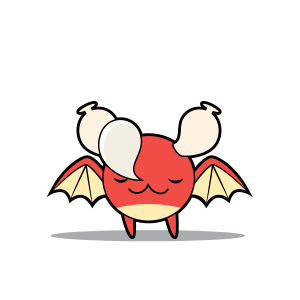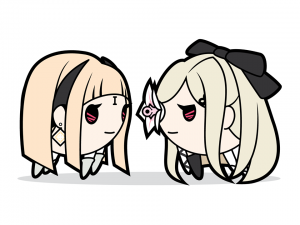
The creative mind behind the Drag-on Dragoon (Drakengard) and Nier Gestalt/Replicant series breaks down how he came to create the characteristic hit series in this 4-part, semi-regular column.
What it means to have game developers speak before the media
Hello, I am Yoko Taro. How is everyone doing during these cold days? Since I just finished a bunch of work, I hopped over to Singapore for a short vacation and am thoroughly enjoying the high-end, elaborate resort life and some nice, ethnic food.
I’m totally lying. What the heck is ‘high-end, elaborate resort life,’ anyway?
Over the New Year, I was stricken with a pretty bad cold. I had a horrible cough that actually made my back hurt. …but I guess this really isn’t the story you want to hear from me, right?
This is today’s story.
My job is creating games. If I—at age 43—had written nonsensical poetry like:
I went to a restaurant
For the best French toast
In Shinjuku San Chou-me— 🙂
People lined up a long way.
But the maple syrup was so good
It was hard not to make a mess. 😀
I seriously doubt anyone would want to hear this from an old man like me.
But actually, for anyone who makes games, the real job is selling the product that you create. It’s best to use the game to tell your message. That’s what I think, anyway!
Nevertheless, before a game is released, I received word about interviews from Famitsu and Dengeki, and Famitsu and Dengeki (they were joint projects, so I tried to write it side-by-side).
But then, even if I give an interview before a release, there is absolutely nothing I can talk about. I can’t talk about spoilers and totally ruin the gaming experience for the customer. So, unfortunately, the interview turns into something like this:
—What is the most important aspect the of the game?
Yoko: There’s a really interesting character that will make an appearance.
—Really!? Who is it? Tell us!!
Yoko: Please look forward to buying the game. Heeheehee
What the heck is this? What are you giggling “heeheehee” for!? That’s no different than saying nothing at all! It’s a waste of paper and resources!! Don’t say about 3 lines worth of information in an excess of 4,000 Japanese characters!! The amount of entropy increases drastically!! heeeeeeeeeee!
……I’m sure is the feeling that spread throughout much of Japan. Simply put, game creators are not entertainers or commentators, so it’s not feasible to think that what we end up talking about will be interesting. It will only be the most depressing feeling of boredom you have ever experienced.
That’s why I absolutely hate interviews, even to the point of DYING! Preferably, I don’t want to be in the spotlight at all. But there have been times that I have had to be an adult and do it. I can’t say yes to one interview and then no to another, so…… I often tend to fall into this sort of negative spiral. I shall die. Instant death. *Splat*
Our job is to create something that customers will enjoy (?), so it would be bad for a nobody like me to be in the spotlight. If there’s absolutely no way out, even if it becomes a horrible mess, a ton of effort is needed to make it the slightest bit interesting.
With that said, I did some research.
First of all, if you read this and thought it was interesting, then you are more than likely quite eccentric. People who say things you have no clue what they’re saying are naturally interesting to watch. It’s the same with famous animation directors, isn’t it!? Self-esteem and pessimism are like screws that really mess with one’s head. It’s like the insensitivity of saying in an interview that someone else’s work was uninteresting. Such extreme people would watch it and be highly amused. But it’s impossible! That is talent! But for me an impossibility. Ahahaha~!
The next interesting thing were the editorial-like comments. It’s fun to read because you cannot see the transparency of writer’s arrogance and opinion. More than making a comeback on the spot, I think it’s simpler to say “what you want to say” rather than “be asked” in the first place. It’s okay to have those questions that are like “if you have something you’d like to say, please feel free”, right? Huh? What if you don’t have anything to say? You can’t ask those people to speak! The whole thing will be silence!
Um……? “As a result of saying whatever you feel like, you can’t have someone like Yoko come on and talk so incoherently”, you say? You can’t worry about the details. I’m also writing this column as a thank you to Famitsu— (said in a monotone voice).
Ahh, what was I talking about? Ah, right! The most overwhelmingly boring thing I thought about was…… (the following text has been omitted by the editorial department).
But you know what! It’s not logical to think that developers who only make games will make a good match. Since the Interview Corner section of a magazine is more independent than the rest, it would be best to carefully think of who to interview! That way the girls are bound to be happy! Crap! There’s that “pretty boy” topic again! What the heck did I do to be confronted by this obvious reality! To hell with “pretty boys”! To hell with French toast! To hell with those high-end, elaborate resorts! Even if this world is de—
The original article was published in the 2/6 No. 1312 issue of Famitsu magazine. Illustrations by Yukiko Yokoo. Translation by Rekka Alexiel.

